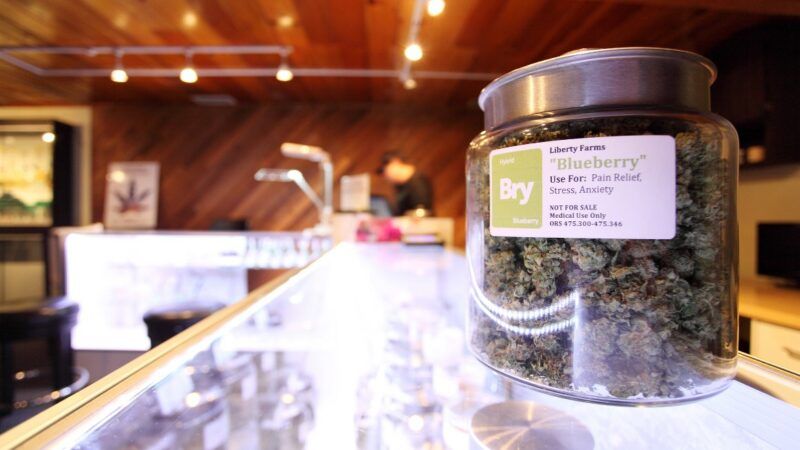New York Finally—After Three Years—on Verge of Legalizing Marijuana
A compromise is now circulating that would establish a market but also allow growing at home.

After several years of failed political wrangling, New York is on the cusp of legalizing the recreational sale and consumption of marijuana.
At a press conference Wednesday, Gov. Andrew Cuomo announced that an agreement was close and that lawmakers were reviewing the final details. The bill may be ready to be voted on as early as next week. The text of the bill is not yet public, but some of the details have been making its way out to New York media outlets.
Marijuana Moment compiled all these details together. If its summary is accurate, there have been some solid improvements over earlier versions of the legislation.
Cuomo had been circulating his own legalization proposal that would completely forbid New Yorkers from growing their own—even for medical purposes. The draft now circulating would let New Yorkers grow their own weed: six plants at a time for their own use, but only three of which could be matured. Households with more than one adult could grow a maximum of 12 plants. Municipalities would be barred from banning people from growing their own, but they could establish restrictions.
If that part of the bill stays intact, it will be improvement over New Jersey's recent legalization. New Jersey does not permit its citizens to grow their own marijuana. They have to purchase it from licensed dealers—who then, of course, have to direct a cut to the state via taxes.
New York's bill will reportedly let cities opt out of allowing retailers, but it will also allow citizens to overrule such bans via ballot initiatives. The law would also permit social consumption sites, cafés where you can enjoy a little weed if you're, say, a parent frustrated at the absurd corruption of your state's government and in need of a little relaxation but don't want marijuana in your house with the kids.
Licensed retail shops aren't scheduled to begin opening under the current proposal until December 2022. Marijuana products will be taxed at 9 percent, and then an additional 4 percent tax will apply. That's actually lower than some other states that have already implemented retail sales, but there will be additional taxes on other products such as edibles and concentrates.
Police will be able to use the smell of cannabis as evidence to suspect that somebody may be impaired (as in while driving), but it will not on its own be used to justify searching a vehicle.
The proposal will also expand who qualifies as a medical marijuana user, and it will allow patients to get a 60-day supply, rather than the current 30-day supply. Existing medical marijuana shops will be allowed to open additional shops, including non-medical retail stores.
I realize this sounds like faint praise, but the bill is much better than it looked like it was going to be. There's still a tremendous amount of meddling in the marketplace, because tons of people want their hands in the till and want to influence who gets to open up a shop.
The most important thing about the legislation will be the continued decline in marijuana arrests. Misdemeanor marijuana arrests in New York City have been declining since 2011, but have slightly increased elsewhere in the state. And yes, statistically enforcement has overwhelmingly targeted black and Latino people. Less of that will be a good thing all around.


Show Comments (16)